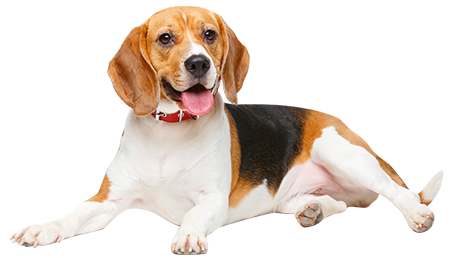Understanding Grain-Free Dry Dog Food: A Comprehensive Guide for Pet Owners
When it comes to choosing the right food for your dog, understanding the implications of different diets can be crucial. One popular option among pet owners is grain-free dry dog food. This type of diet eliminates grains such as wheat, corn, and rice, which are often found in traditional dog food. Let's delve into the benefits and considerations surrounding grain-free dry dog food to help you dete
2025/07/28
When it comes to choosing the right food for your dog, understanding the implications of different diets can be crucial. One popular option among pet owners is grain-free dry dog food. This type of diet eliminates grains such as wheat, corn, and rice, which are often found in traditional dog food. Let's delve into the benefits and considerations surrounding grain-free dry dog food to help you determine if it's the right choice for your canine companion.
One of the primary reasons pet owners opt for grain-free dry dog food is due to food sensitivities and allergies. Some dogs may struggle to digest grains, leading to gastrointestinal issues like bloating, diarrhea, or gas. By switching to grain-free options, you may observe an improvement in your dog's digestive health. Moreover, many grain-free formulations utilize alternative carbohydrate sources, such as sweet potatoes, peas, or lentils, which can provide essential nutrients without the potential drawbacks associated with grains.
Another advantage is that grain-free dry dog food often contains higher protein content, which can be beneficial for active dogs. Protein is vital for muscle maintenance and overall energy, making it an essential component of your dog's diet. Additionally, many grain-free products incorporate quality animal proteins, which enhance flavor and palatability, ensuring your dog enjoys mealtime.
However, it's important to approach the choice of grain-free dry dog food with caution. Some studies have raised concerns about potential links between grain-free diets and certain health issues, such as canine dilated cardiomyopathy (DCM). This condition affects the heart's ability to pump blood efficiently and can be serious. While the exact cause is still under investigation, it's wise to consult your veterinarian before making any significant changes to your dog's diet, especially if they have pre-existing health conditions.
When selecting grain-free dry dog food, it's crucial to read ingredient labels carefully. Look for products that list high-quality protein sources as the first ingredient and avoid those with excessive fillers or artificial additives. A balanced diet should include a mix of proteins, fats, vitamins, and minerals to ensure your dog receives comprehensive nutrition.
Another consideration is the life stage of your dog. Grain-free dry dog foods are available for puppies, adults, and seniors. Each life stage has different nutritional requirements that must be met for optimal health. Always choose a formula that is specifically designed for your dog's age and energy level.
In conclusion, grain-free dry dog food can be a suitable option for many dogs, particularly those with specific dietary needs or sensitivities. However, like any dietary choice, it requires careful consideration and consultation with a veterinarian. By being informed and proactive, you can ensure that your dog receives the best possible nutrition tailored to their individual requirements.
One of the primary reasons pet owners opt for grain-free dry dog food is due to food sensitivities and allergies. Some dogs may struggle to digest grains, leading to gastrointestinal issues like bloating, diarrhea, or gas. By switching to grain-free options, you may observe an improvement in your dog's digestive health. Moreover, many grain-free formulations utilize alternative carbohydrate sources, such as sweet potatoes, peas, or lentils, which can provide essential nutrients without the potential drawbacks associated with grains.
Another advantage is that grain-free dry dog food often contains higher protein content, which can be beneficial for active dogs. Protein is vital for muscle maintenance and overall energy, making it an essential component of your dog's diet. Additionally, many grain-free products incorporate quality animal proteins, which enhance flavor and palatability, ensuring your dog enjoys mealtime.
However, it's important to approach the choice of grain-free dry dog food with caution. Some studies have raised concerns about potential links between grain-free diets and certain health issues, such as canine dilated cardiomyopathy (DCM). This condition affects the heart's ability to pump blood efficiently and can be serious. While the exact cause is still under investigation, it's wise to consult your veterinarian before making any significant changes to your dog's diet, especially if they have pre-existing health conditions.
When selecting grain-free dry dog food, it's crucial to read ingredient labels carefully. Look for products that list high-quality protein sources as the first ingredient and avoid those with excessive fillers or artificial additives. A balanced diet should include a mix of proteins, fats, vitamins, and minerals to ensure your dog receives comprehensive nutrition.
Another consideration is the life stage of your dog. Grain-free dry dog foods are available for puppies, adults, and seniors. Each life stage has different nutritional requirements that must be met for optimal health. Always choose a formula that is specifically designed for your dog's age and energy level.
In conclusion, grain-free dry dog food can be a suitable option for many dogs, particularly those with specific dietary needs or sensitivities. However, like any dietary choice, it requires careful consideration and consultation with a veterinarian. By being informed and proactive, you can ensure that your dog receives the best possible nutrition tailored to their individual requirements.
Key words:
Previous Page:
Contact Us
Address:
No. 22, Jingxing Road, Economic and Technological Development Zone, Nantong, Jiangsu Province.
E-mail:
panghuiqiang@metzpet.com
Contact Phone:
+86-18862996617














